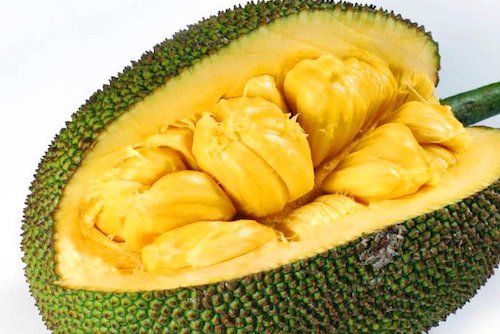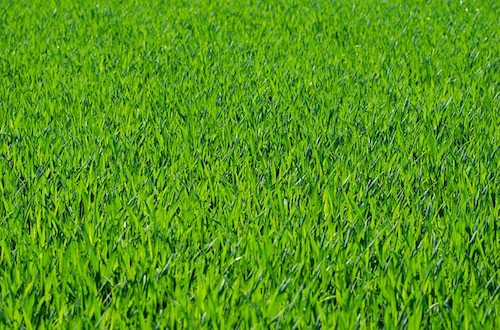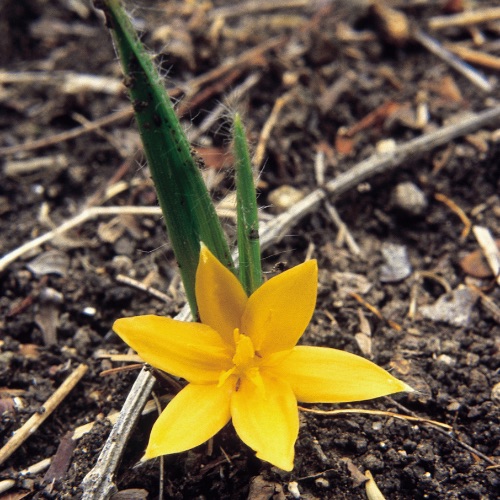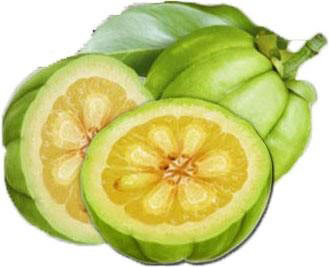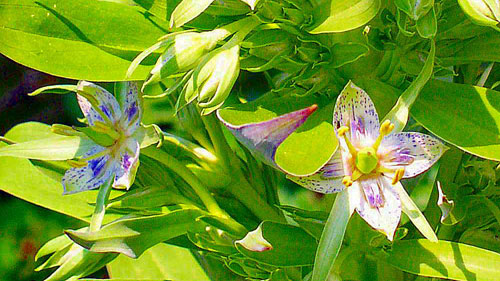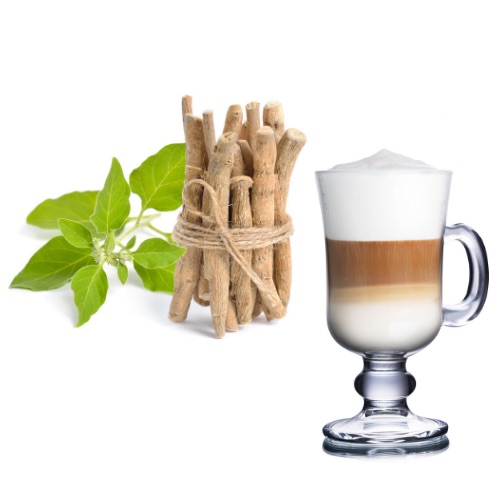Uses of Ashwagandha or Withania in the treatment of cancer, breast cancer, thyroid, and cholesterol are being researched in India and the western world. Link to a few successful clinical studies on the effectiveness of Withania on the above-said diseases is given here.
Related article Ayurvedic Vajikarana Herbs for Energy, Stamina and Strength
Table of content
What is Ashwagandha in Ayurveda ?
Ayurveda Health Benefits and Uses of Ashwagandha
Ashwagandha Clinical studies on Cancer and breast cancer
Ashwagandha and Thyroid Function
Ashwagandha and Blood Cholesterol
Ashwagandha for anxiety and depression
Useful preparations of Ashwagandha
What is Ashwagandha in Ayurveda?
Ashwagandha is a wonder herb, whose health benefits are very well explained in Ayurveda. This herb is also known as the Indian Winter Cherry and has the Botanical name Withania Somnifera. It is a shrub belonging to the Solanaceae family and is grown in western India, Gujarat, MP, Punjab, and the Himalayas. Roots of Withania are used for medicinal purposes in ayurvedic preparations.
Ashwagandha is called by different names in India
In hindi – Asgandha, Asgandh
In Telugu – Penneru Gadda/ Dommadolu Gadda
In Tamil – Amukura, Askulang
In Malayalam – Amukkura
In Marathi – Asandh, Doragunj
In Gujarathi – Aasandha, Ghoda Aakun
In Bengali – Asvagandha
In Kannada – Ashvagandhi
Ashwagandha gets its name because its roots have the odor of a horse. (Ashwa = horse, gandha = odor). It is called by another name Varaha karni because its leaves resemble pigs ear. This herb is light (laghu) to digest and increases the moistness of tissues (snigdha) . It tastes bitter ( tikta rasa ) and sweet (madhura rasa). On digestion the sweet taste dominates. The main part used is the root of this herb.
Acharya Charaka classifies this herb as balya and Brimhaniya. Balya herbs or body strengthening herbs improve strength and immunity. Brimhaniya herbs improve body mass or healthy body weight. Hence this herb is usually used in weight gain therapy.
Ayurveda Health Benefits and Uses of Ashwagandha
The various medicinal properties of the root of this plant are attributed to compounds known as withanolides which are present in it. Withania is used as an adaptogen (as it enhances endurance), a rejuvenating tonic, and a sedative. Hence many herbalists refer to this herb as Indian ginseng.
Here we have listed the health benefits of Withania as praised by Ayurveda acharyas and also findings from researches
Texts of Ayurveda explain the Health benefits of this plant as follows
Ashwagandha Clinical studies on Cancer and breast cancer
Maintenance of telomere length is the most consistent attribute of cancer cells. Tightly connected to their capacity to overcome replicative mortality, it is achieved either by activation of telomerase or an Alternative mechanism of Lengthening of Telomeres (ALT). Disruption of either of these mechanisms has been shown to induce DNA damage signaling leading to senescence or apoptosis. Telomerase inhibitors are considered potential anticancer drugs but are ineffective for ALT cancers (~15% of all cancers). Withaferin-A (Wi-A), a major constituent of the medicinal plant, Withania somnifera (Ashwagandha), has been shown to exert anti-tumor activity. However, its effect on either telomerase or ALT mechanisms has not been investigated. Here, by using isogenic cancer cells with/without telomerase, we found that Wi-A caused stronger cytotoxicity to ALT cells. It was associated with the inhibition of ALT-associated promyelocytic leukemia nuclear bodies, an established marker of ALT. Comparative analyses of telomerase positive and ALT cells revealed that Wi-A caused stronger telomere dysfunction and upregulation of DNA damage response in ALT cells. Molecular computational and experimental analyses revealed that Wi-A led to Myc-Mad mediated transcriptional suppression of NBS-1, an MRN complex protein that is an essential component of the ALT mechanism. The results suggest that Wi-A could be a new candidate drug for ALT cancers. Cell Death and Disease (2017) 8, e2755; doi:10.1038/cddis.2017.33; published online 20 April 2017
https://www.www.dbtindia.nic.in/wp-content/uploads/YuetalCDD2017.pdf
The design of chemoprevention trials should incorporate insights from the traditional uses of WS as well. Its common use as an adaptogen that promotes homeostasis and as an energy enhancer may suggest potentially useful modes of action for the drug. The research work cited here is dedicated to understanding these biological pathways modulated by WS and its withanolides. Pre-clinical studies, performed either in cell culture or in animal models that mimic appropriately relevant conditions of populations, need to be utilized for this purpose. Evaluating the chemopreventive efficacy of not only WA but also extracts of WS in a broader range of animal carcinogenesis models would bolster the potential role of WS to prevent cancer. Data gathered from such studies would be beneficial in 1) understanding the pharmacodynamics and pharmacokinetics of Ashwagandha 2) modifying structural moieties of withanolides to assess the role of chemical structures in the mechanism of action 3) identifying molecular events involved in WS-mediated effects to specifically target signaling pathways that are validated for cancer chemoprevention 4) determining whether co-administration with other agents (compounds used in traditional medicine to complement Ashwagandha or agents that are currently used in Western cancer chemoprevention trials) could potentially render higher benefits for cancer prevention.
https://www.ncbi.nlm.nih.gov/pmc/articles/PMC4899165/
Ashwagandha and Thyroid Function
Ayurveda vaidyas and practitioners opine that ashwagandha effectively addresses the symptoms of hypothyroidism like stress, depression, weight gain, and joint, and muscle pain. In their clinical practice, they have seen a decrease in TSH and improved T3 and T4 when this herb is used as a supportive therapy along with other treatments. Its anti-oxidant and stress-relieving property helps in a great way to stimulate thyroid activity. Usually, ayurvedic doctors advise taking root powder of Withania in the dose of half a teaspoon or 3 gms at night, with a cup of milk or water, 15 minutes after food, for thyroid problems. But you have to strictly consult a qualified ayurvedic doctor before consuming this herb.
Ashwagandha and Blood Cholesterol
This herb is heart-friendly. Various research have shown that this plant may help to reduce blood cholesterol levels. It reduces hypertension or high blood pressure and also acts as a diuretic.
Ashwagandha for anxiety and depression:
As it balances Vata and Kapha, it improves memory, counteracts the effects of stress, and calms the mind. It has the ability to relieve stress and anxiety. It acts as a sedative. Stressed patients with insomnia benefit from this herb. This herb can be used for Alzheimer’s disease, memory loss, and insomnia (loss of good sleep).
Ashwagandha for Men’s Health
This herb has been eulogized as vajikarana herb (aphrodisiac). Its aphrodisiac properties are praised as vajikari, vrushya and ati shukrala. This is regularly used in Ayurveda vajikarna therapy. According to the principles of Ayurveda, it increases and strengthens shukra dhatu. Strong shukra dhatu rectifies erectile dysfunction and premature ejaculation. It improves testosterone levels, libido, sperm count, and motility. Texts of Ayurveda recommend a recipe “ashwagandha ksheerapaaka” or ashwagandha milk for men to boost their reproductive health. For this recipe, ashwagandha root powder is boiled with milk and consumed. Ashwagandha is praised as the best ayurvedic herb for klaibya or erectile dysfunction. This milk is also popular as an ashwagandha latte. The ashwagandha latte or milk mix is easily available online.
For sexual disorders in men, this is used along with vidarikand, shilajit, gokshura (tribulus), Kapikacchu (mucuna), Safed musli, shatavari etc.
Ashwagandha in PCOS and Female libido
This herb enhances mood and acts as the best uterine tonic. It strengthens the body and improves female libido and fertility by helping in resolving PCOS or PCOD.
Ashwagandha for general health :
It acts as balya and strengthens the body. Generally, Withania stimulates the immune system and strengthens it. It increases the body’s energy level. Convalescent patients gain more energy and can spring back to normal routine quicker when this herb’s preparations are used after an illness. The immediate relapse of disease is prevented through the use of this herb. This supports HIV patients by strengthening their immune systems. Since it balances Vata it is useful in neurological and neuromuscular disorders like paralysis. It also acts as the best detox herb and can be used in Ayurveda detox for erectile dysfunction. It eliminates body toxins and helps in rejuvenation.
Ashwagandha for Joint Pain:
It has anti-inflammatory properties and has been successfully used in adjuvant therapy for arthritis or amavata. It reduces inflammation of joints and eases movements. It also strengthens joints and surrounding muscles.
Withania for the good digestive system
Withania increases appetite. It normalizes digestion and bowel movements. It relieves constipation and is immensely beneficial in men who suffer from erectile dysfunction due to constipation.
Ashwagandha in diabetes:
The root of this herb acts as a diuretic and also improves blood sugar levels. It can be used as supportive therapy in diabetes.
Withania for respiratory problems:
This herb strengthens the lungs and boosts their immunity. It prevents common coughs and cold
Antiaging properties of Withania
This wonder herb slows down the aging process when used as Rasayana (rejuvenating preparation). It balances doshas and retards the rate of aging of body tissues. Ashwagandha Rasayana is a very beneficial preparation to upkeep the health and youth. Ashwagnadha anti-aging skin creams are also available in the market.
Useful preparations of Ashwagandha:
- A paste of ashwagandha leaves when applied to a local inflammation acts as an anti-inflammatory.
- The herbal massage oil which includes this herb is useful in many conditions like paralysis, epilepsy, sleeplessness, etc. Hence it is used in massage therapies or abhyanga.
- The preparation of Ashwagandha which is processed with ghee, jaggery, and honey is a very good aphrodisiac and increases semen quantity, sperm count, and motility. It is effectively used for low libido, Erectile dysfunction, and premature ejaculation.
- Roots of this plant when used regularly help to improve the conditions like emaciation of children, senile debility, rheumatism, in all cases of general debility, nervous exhaustion, brain-fag, low memory, loss of muscular energy, and spermatorrhoea. It increases body energy and vigor. It helps to rebuild the body system which is worn out due to chronic diseases like syphilis, rheumatism, etc. It also replenishes the lowered energy of the body due to over-work, and mental exertion thus preventing early aging.
- Regular use of this herb is found very useful in emaciated children. It increases body weight and body energy.
- Regular use of ashwagandha helps to reduce blood sugar and cholesterol levels.
- Fine root powder of this herb well mixed with oil is very used fully in many skin conditions.
- This medicinal plant also acts as a galactagogue and thickens the milk when given to nursing mothers.
Is ashwagandha safe to use?
It is safe when used according to the prescription of a qualified ayurvedic doctor. Few ayurvedic practitioners do not consider this herb safe to use in pregnancy. Self-medication with this herb is not advisable. Always consult a qualified ayurvedic doctor before consuming.
This herb always has to be consumed with milk or ghee instead of water as its hot potency may increase pitta and cause gastric irritation, heartburn, giddiness, and body heat. It may induce sleep in some. Hence it is always recommended to use this herb at night.
(WhatsApp Dr.Savitha Suri @+ 91 6360108663/ to know more about ayurvedic treatment and remedies )
Author : Dr. Savitha Suri Consultant Ayurvedic Physician
Call us at +91 9945995660 / +91 9448433911
Whats App + 91 6360108663/


